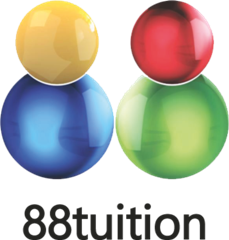“Mistakes are proof that you’re trying”, but if there are no tests given, how will mistakes be made?
The sidelining of mid-year exams in primary and secondary schools by 2023 as part of the Ministry of Education’s policy changes under the Learn for Life Movement has been welcomed by most. It has been hailed as an exemplary and student-friendly decision. In this instance, let us look at how we can improve upon the already existing methods to make them more suited for today’s changing education methods.
Why are assessments necessary?

Assessments, especially periodic ones, help measure the progress and competency of students and help them keep track of their efforts and achievements. If schools just focus on dumping information into the students’ minds and leave it at that, there won’t be much progress made. The existence of assessments like exams and tests also works as a possible motivating factor for children to study and put in more effort. The effort requires evaluation and appreciation. Only then would anyone be willing to put in more effort and work harder.
Also, learning is a continuous process that requires constant testing and feedback. Identifying a student’s strengths and weaknesses is paramount in helping them improve and formulating a path for them to follow. It also helps teachers formulate study plans and decide on the approach to teaching each student. Without assessing a student, it is not possible to give them what they need.
How do present forms of assessments fall short?
- Nowadays, exams and other forms of assessments are only focused on information that children have learned by heart and promote rote memorisation in students as opposed to learning by understanding.
- Frequent exams and the pressure they put on students take away any joy a student might find in learning. It is due to this fact that the MoE has decided to scrap mid-term exams; students will thereby be able to spend more time enjoying the process of learning without having to constantly vary an upcoming exam.
- Most exams are only focused on superficial knowledge that students possess. They fail to get an accurate assessment of the depth of the knowledge and expertise one possesses.
- Fails to measure individual progress as most assessments are designed for a whole group.
How can assessments be made better?
The best way to make assessments better is to tailor them to match each student. But since it is hard to tailor them for each student and because it is such a time and effort-intensive task, we can only rely on general methods, but we can make it more efficient and student-friendly.
- Focus more on practical assessments rather than written tests. In that way, we will be able to measure real progress instead of superficial knowledge.
- Make the process of assessments more friendly. Instead of using them as a way to criticise and make children feel down, use them to help children identify where they are lacking and help them shorten the knowledge gaps.
- Don’t make assessments a source of competition among students. Even though friendly competition helps students to improve their performance and offers motivation, making children compete against each other in class assessments can be detrimental to their development. Children can develop a lack of confidence and feel depressed and stressed if they fail to perform well. It can also foster enmities between classmates if left unchecked. It would be better not to publicly post the results of children and instead, inform them personally.
- You can make use of assignments and personal projects as a more reliable form of assessment instead of short tests and quizzes. Some children will fail to perform well in these even if they have the necessary skill and knowledge due to exam anxiety or stress. In such situations, assignments and projects can be a better measure of their skill and aptitude. It would also provide the students with enough time and a relaxed situation where they will be able to bring out their true potential.
- Use a more periodic assessment style instead of an examination style that takes place at the end of a term or semester. This way, we will be able to observe and track the progress of students in a more visible and sensible way.
- Use video-based platforms. Besides our ‘Teach-Assess-Review’ model, 88tuition also has specially curated practices known as “Adaptive Assessments” to help students improve their academic standard in various topics.
We hope these pointers prove to be insightful to you and will inspire many to adopt better assessment methods that won’t exert pressure on our students. With the recent policy changes made by the MoE, we can expect more favourable changes in the times to come. We wish you all the best! 🙂
Exam Smart Tips
Exam Smart Tip #1 – How to Encourage Our Kids to Speak Better?
Exam Smart Tip #2 – How to avoid carelessness?
Exam Smart Tip #3 – Establishing Routines!
Exam Smart Tip #4 – Let’s Read Carefully!
Exam Smart Tip #5 – Beating the Exam Fever!
Exam Smart Tip #6 – How to Eat Right for the Exams?
Exam Smart Tip #7 – How to Avoid a Meltdown?
Exam Smart Tip #8 – Taking Stress out of Tests
Who We Are
Mission statement – “Empower every student to achieve full potential”
88tuition Pte Ltd offers the best PSLE Tuition Singapore for children looking to ace the PSLE exam. With effective learning materials and high-quality explanatory videos by experienced trainers, children are provided with the best online PSLE tuition.
With the basics learnt well, children will be able to grasp advanced concepts easily. Looking for the best PSLE math tuition, PSLE Science tuition and PSLE English tuition in Singapore? 88tuition has got you covered. The online training videos and assessments are designed in a way that children are made to enjoy the learning process.
UEN 201817310C
271 Bukit Timah Road; #03-08; Singapore 259708



